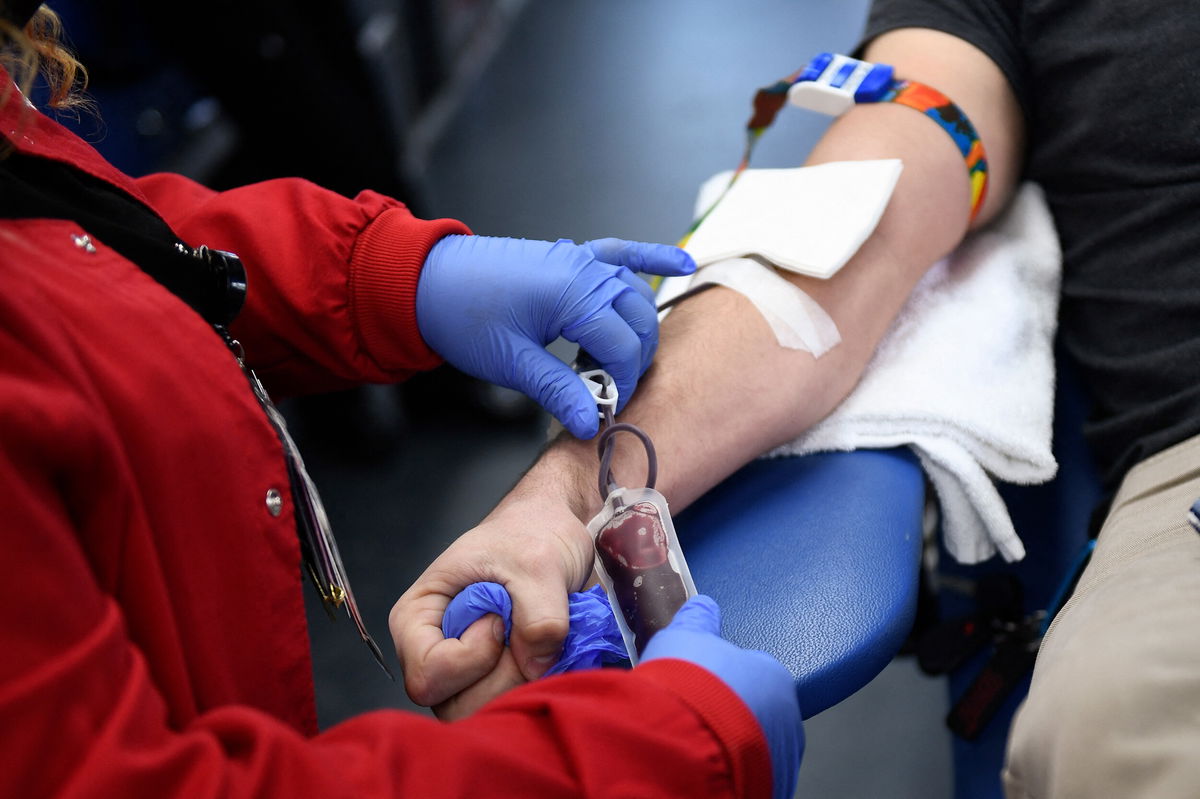FDA considering shift toward individual risk-based assessments for blood donors

A person donates blood during a Children's Hospital Los Angeles blood donation drive on January 13. The US Food and Drug Administration is considering shifting its blood donation policy away from blanket assessments toward questionnaires that focus more on individual risk.
By Carma Hassan, CNN
The US Food and Drug Administration is considering shifting its blood donation policy away from blanket assessments toward questionnaires that focus more on individual risk, it said Wednesday.
The agency is using data from a donor eligibility study and other blood surveillance information that “will likely support a policy transition to individual risk-based donor screening questions for reducing the risk of HIV transmission,” the FDA said in a statement.
“The FDA remains committed to gathering the scientific data related to alternative donor deferral policies that maintain a high level of blood safety,” the statement says. “We anticipate issuing updated draft guidance in the coming months.”
The FDA would not comment on further details, but the Wall Street Journal reported Wednesday, citing sources familiar with the plans, that the changes would let more men who have sex with men in monogamous relationships donate blood.
Potential donors who have had a new sexual partner in the past three months would be asked if they have had anal intercourse during that time period. Those who have not would be allowed to donate blood, an FDA official told the Journal.
The current policy requires men who have sex with men to wait three months after sexual contact with other men before they can donate blood.
Up until 2020, the United States required men who have sex with men to wait a year after sexual contact with a man before donating blood, but the FDA revised these guidelines in 2020, given an increased need for donations as a result of the Covid-19 pandemic.
“While today’s reports of an overdue move from the FDA is an important step, our community and leading medical experts will not stop advocating for the FDA to lift all restrictions against qualified LGBTQ blood donor candidates,” Sarah Kate Ellis, the CEO and president of GLAAD, the world’s largest LGBTQ media advocacy organization, said in a statement.
“As LGBTQ leaders and medical experts have been saying for years: bans and restrictions on blood donations from gay and bisexual men are rooted in stigma, not science,” Ellis said.
American Medical Association President Dr. Jack Resneck Jr. told CNN in a statement that news of a possible guidelines shift is “encouraging.”
“The AMA relentlessly advocates for eliminating public policies that do not align with scientific evidence and best ethical practices, which is why we have urged the FDA to use rational, scientifically-based deferral periods for donation of blood, corneas, and other tissues that are fairly and consistently applied to donors according to their individual risk,” he said.
The American Red Cross said in a statement Wednesday that it “believes blood donation eligibility should not be determined by methods that are based upon sexual orientation and is committed to working with partners toward achieving this goal.”
The Red Cross has worked with Vitalant and other organizations on the FDA-funded ADVANCE study to learn about whether an individual risk-based blood donor history questionnaire could replace a time-based referral for gay and bisexual blood donors.
Nick Gehrig, the spokesperson for Vitalant, a nonprofit network of blood donation centers, told CNN that it is “proud to be the lead investigator in the ADVANCE Study to provide the FDA with the necessary data to consider changes to the men who have sex with men (MSM) eligibility policy while maintaining the safety of the blood supply. We look forward to learning more about what comes next from the FDA in the months to come.”
The UK overturned a similar policy in 2020, permitting men in a long-term relationship to give blood at any time. Other men who have sex with men are still required to refrain from sex for three months before donating in the UK.
The-CNN-Wire
™ & © 2022 Cable News Network, Inc., a Warner Bros. Discovery Company. All rights reserved.